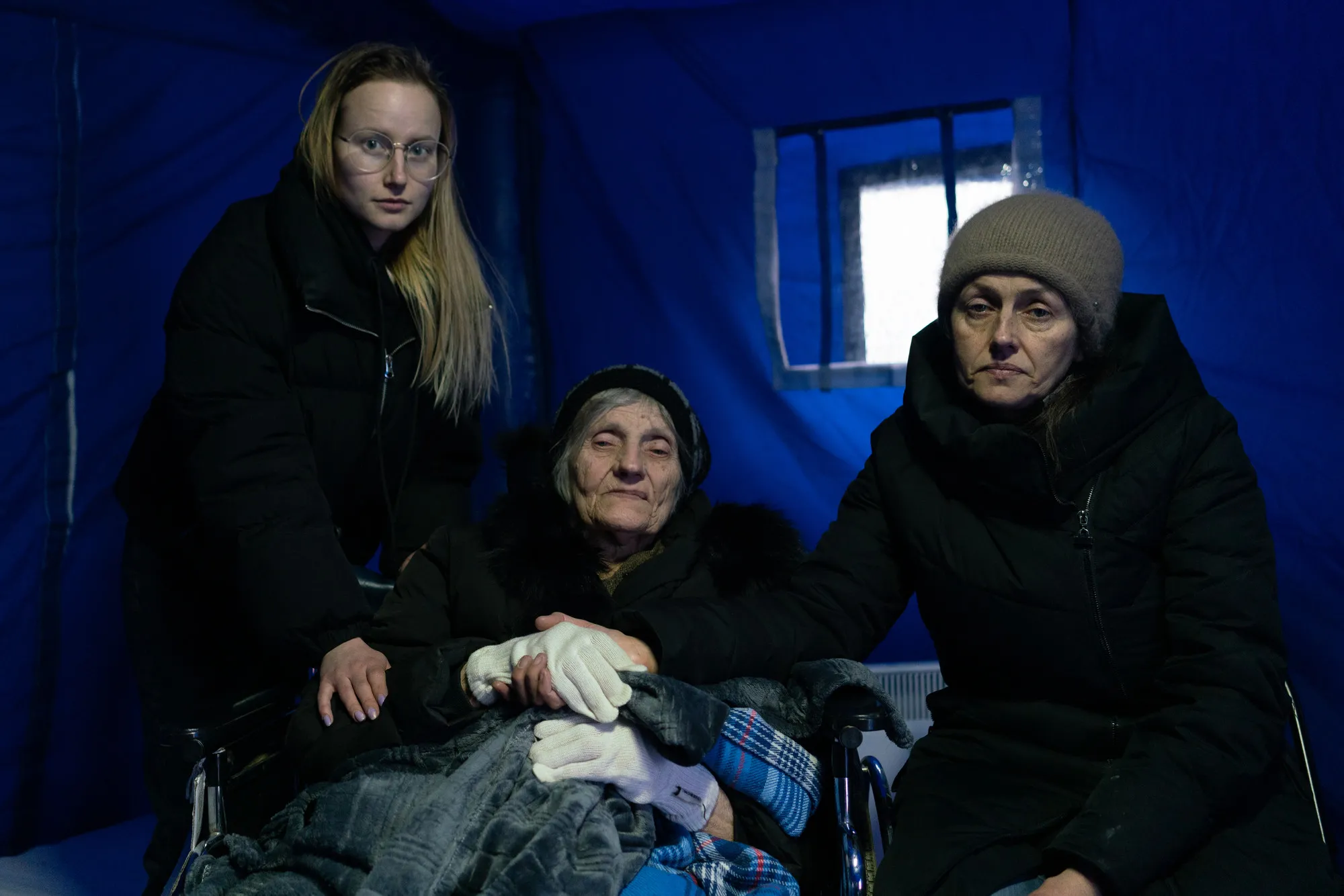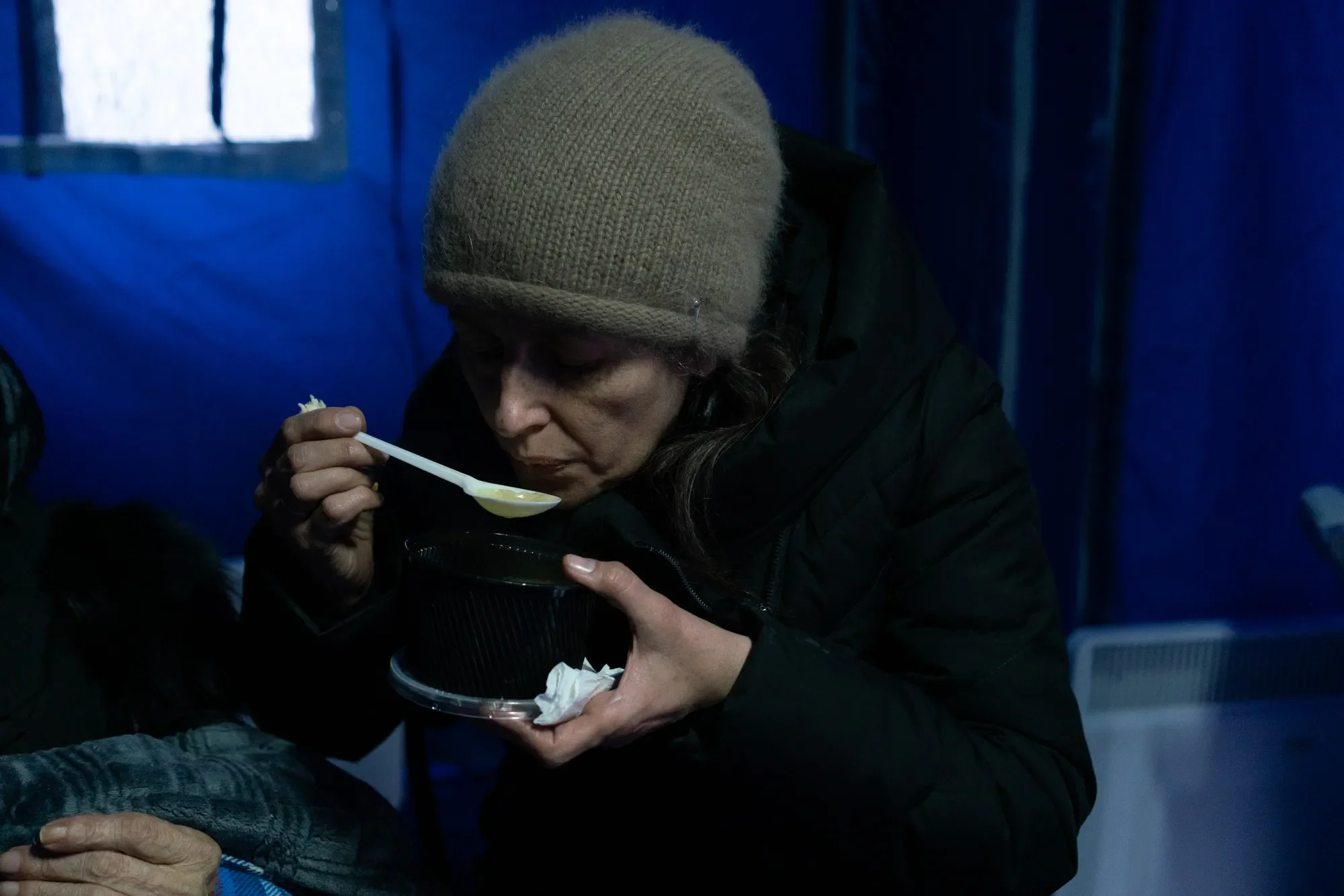Oleksandra, Elena and Vika sip hot tea in a safe shelter designed for disabled people established by CARE’s Romanian partner, Star of Hope, at the Sighet border crossing. Oleksandra suffers from Type 2 diabetes and completed the final leg of their journey to the border in a wheelchair provided by volunteers.
A few days after the invasion, Vika travelled from Kyiv to Chernivtsi, in western Ukraine, to help her mother and grandmother evacuate. All three women cried as Vika described their long and dangerous trip. “We tried to travel in a car with a man who transports people with disabilities, but he didn’t have enough documents, so in the end we had to come by bus and by walking, which took three hours,” she said. “But we struggled with my grandmother, as she was really weak and couldn’t walk because she was so scared. So we were holding her up under her arms and carrying her along. We were really scared; we weren’t sure my grandmother would survive, but volunteers from inside Ukraine also helped us. The road was really bad.”


